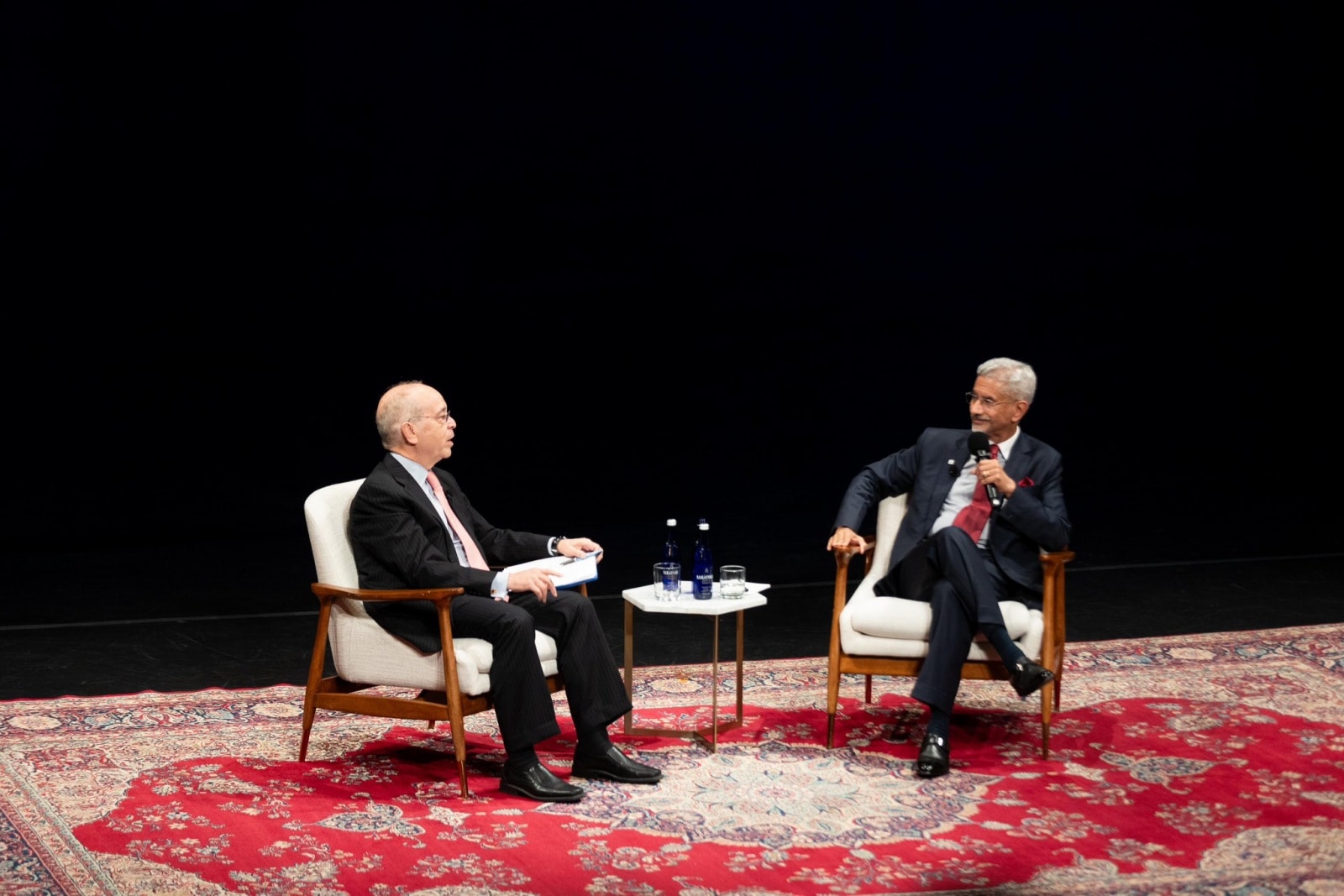India has been actively engaging both Russia and Ukraine to explore avenues for ending the ongoing conflict and facilitating meaningful negotiations, External Affairs Minister S Jaishankar said in a recent statement, reiterating New Delhi’s commitment to finding a peaceful resolution to the ongoing conflict between the two nations. .
“We believe wars are not a viable means of resolving disputes. A solution cannot emerge from the battlefield,” Jaishankar remarked during an event titled ‘India, Asia and the World’ hosted by the Asia Society and the Asia Society Policy Institute in New York.
In response to a query about India’s role in resolving the conflict, he explained, “We foresee a negotiation process at some point, which must include both parties. It cannot be one-sided.” He emphasized that India has been communicating with both the Russian and Ukrainian governments in various locations, aiming to identify potential actions that could expedite the end of the conflict and initiate serious negotiations.
“This exploration does not entail us proposing a peace plan; rather, we are engaged in conversations and sharing insights with both sides. My sense is that both parties appreciate this effort,” he added.
Jaishankar highlighted the multiple high-level engagements between Indian leaders and representatives from Moscow and Kyiv in recent months. Notably, Prime Minister Narendra Modi met with Ukrainian President Volodymyr Zelenskyy in New York on Monday, marking their third meeting in just over three months. Modi had previously visited Kyiv and Moscow, engaging with both leaders at critical junctures.

“If these conversations prove helpful, we could make a significant contribution, as not many countries today possess the capability or willingness to engage both Moscow and Kyiv simultaneously,” Jaishankar stated. He also noted a global sentiment favoring the prompt resolution of the conflict for the benefit of the global economy and society.
Addressing India’s relationship with Russia, Jaishankar remarked, “As Russia pivots more towards Asia amid tensions with the West, there exist economic complementarities that are advantageous for us. There is a geopolitical rationale for this relationship, alongside military and economic considerations.”
He raised the question of reconciling this with India’s growing ties with the US and Europe, emphasizing the multipolar nature of the current global landscape. “Countries are no longer restricted to exclusive relationships. Every nation seeks to optimize its position within the international order, necessitating a careful approach to managing these dynamics,” he explained, eliciting applause from the audience.
 At the event, the Union Minister remarked that India has a “difficult history” with China, including the conflict in 1962. (Photo: X/@DrSJaishankar)
At the event, the Union Minister remarked that India has a “difficult history” with China, including the conflict in 1962. (Photo: X/@DrSJaishankar)
Jaishankar noted that India has historically maintained a positive relationship with both the Soviet Union and Russia. He recalled that during the Cold War, while Western nations often supported authoritarian regimes like Pakistan, India developed a robust military partnership with the Soviet Union.
Highlighting the nature of India’s economy, he pointed out that as a major consumer of natural resources, India places significant importance on resource-exporting nations, including Russia, Australia, Indonesia, and Gulf countries for energy needs.
India-China relationship key to Asia’s future
Responding to a question on China during an interaction at the Asia Society event, Jaishankar clarified that when he mentioned “75 percent progress” in border dispute discussions with China, he was specifically referring to the disengagement of troops in eastern Ladakh.
Jaishankar highlighted that China’s violations of prior border agreements and its increased troop deployments during the Covid-19 pandemic had heightened tensions in eastern Ladakh, ultimately leading to clashes. He noted that these incidents have overshadowed other aspects of India’s bilateral relationship with Beijing.
“We have a difficult history with China. Despite having explicit agreements, we observed during the pandemic that China deployed a significant number of troops in violation of these agreements along the line of actual control (LAC). A clash was likely to occur, and it did, resulting in casualties on both sides. This, in many ways, has overshadowed the broader relationship,” Jaishankar explained.
“I think the India-China relationship is key to the future of Asia. In a way, you can say that if the world is to be multi-polar, Asia has to be multi-polar. And therefore this relationship will influence not just the future of Asia, but in that way, perhaps the future of the world as well,” Jaishankar said.
The The minister indicated that while the disputes along key friction points have been largely managedchallenges remain in determining patrolling rights in the border areas. He emphasized that “de-escalation” is a crucial next step in improving New Delhi’s overall bilateral relationship with China. “We’ve sorted out much of the disengagement at the friction points, but we still need to resolve some of the patrolling issues. The next step will be de-escalation,” he added.
(With inputs from PTI)
